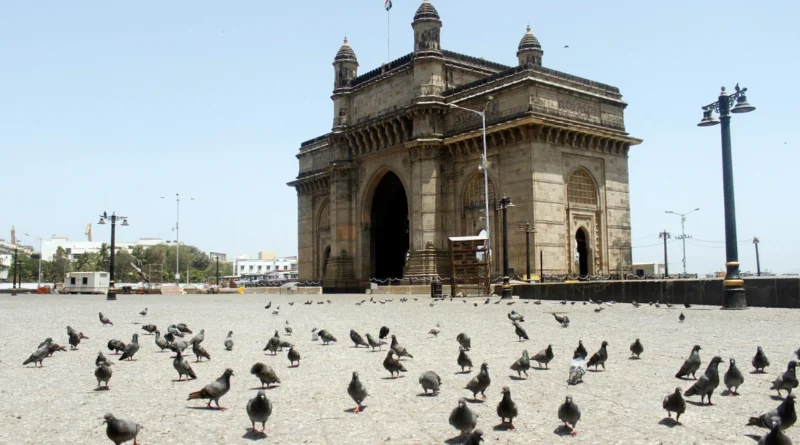Bombay High Court Directs BMC to Take Strict Action Against Those Feeding Pigeons Despite Ban
The Bombay High Court has instructed the Brihanmumbai Municipal Corporation (BMC) to take strict action against citizens who continue to feed pigeons despite the ongoing ban. Following this order, the Maharashtra government has directed BMC to enforce the ruling. The issue of feeding pigeons at pigeon lofts and other locations has become a major political issue in Mumbai. Over 1,000 citizens, including Jain religious leaders, took to the streets in a protest march from the Colaba Jain Temple to the Gateway of India against the city’s ban on feeding pigeons. Jain Muni Nareshchandra Ji Maharaj also announced a fast unto death on August 10, demanding the resumption of the practice. He said, “In the past few days, hundreds of pigeons have died of hunger in Mumbai because state authorities have forcibly stopped animal lovers from feeding the birds. The Dadar pigeon loft and other feeding spots have been sealed by the BMC. We oppose this cruel ban on feeding pigeons.” The site of the fast will be decided soon.
Decades-Long Tradition of Feeding Pigeons in Mumbai
For decades, pigeons have been a common sight across Mumbai’s urban landscape. They can be seen around railway stations, the iconic Gateway of India, and in pigeon lofts where they often gather in flocks. However, following a recent high court order, these locations are now covered with large tarpaulin sheets, marking the onset of controversy, protests, and the first FIR being filed in Mumbai related to feeding pigeons.
The controversy stems from a July 31 order by the Bombay High Court, which directed the BMC to take strict criminal action against anyone violating the ban on feeding pigeons in public and heritage sites. The court cited significant public health risks, including respiratory infections and the damage caused to heritage sites due to pigeon droppings. This order came amid concerns over the growing pigeon population in Mumbai. However, it has faced strong opposition from animal lovers and Mumbai’s influential Gujarati and Jain communities, who consider feeding pigeons a religious act. The decision has sparked pigeon-feeding politics in the economic capital of India.
The Connection Between Pigeons and Mumbai
To understand the issue, it’s essential to explore the history of pigeon lofts in Mumbai and their connection to the city. It is believed that the tradition of feeding pigeons was started by Gujarati and Jain merchants, leading to the development of pigeon lofts in key areas of the city. They viewed it as a religious act, believing it would bring blessings from their ancestors. In fact, in Jainism, feeding pigeons is central to their ethical teachings. For decades, it has been customary for many Jain families to feed pigeons near temples or designated feeding areas operated by trusts. Over the past month, more than 50 such feeding spots have been closed. The famous Dadar pigeon loft was one such location, but last week, the BMC constructed a bamboo structure at the site to prevent feeding. This led to widespread protests from the Jain community.
Protest and the First Criminal Case
On Sunday, over 1,000 activists, animal lovers, and Jain religious leaders marched from Colaba to the Gateway of India in protest against the ban on feeding pigeons. Jain Muni Nareshchandra Ji Maharaj even declared that he would go on an indefinite hunger strike if the ban wasn’t lifted. Activists claim that hundreds of pigeons have died of hunger in Mumbai in recent days. While the ban has always been in place, it was never legally enforced. No political party wanted to anger the influential Gujarati and Jain communities, who form a large part of the city’s population. On August 3, the Mumbai police filed the first criminal case related to feeding pigeons in public places.
The Politics of Pigeons
The issue has also taken on political dimensions, with Maharashtra Minister and BJP MLA Mangal Prabhat Lodha writing a letter to the Municipal Commissioner expressing concern over the demolition of pigeon lofts. In his letter, Lodha questioned whether feeding pigeons alone was responsible for health problems and called for the formation of a panel under judicial supervision to suggest long-term solutions. Lodha noted, “Since the ban on feeding pigeons, there have been several incidents of pigeons dying from hunger. As a result, pigeons are dying on the streets, creating another public health risk.” This issue was also raised in the Maharashtra Legislative Council last month, when a member referred to a death in a family due to a lung disease linked to pigeon droppings.
Stay updated with Latest National News in Hindi on Prabhasakshi

